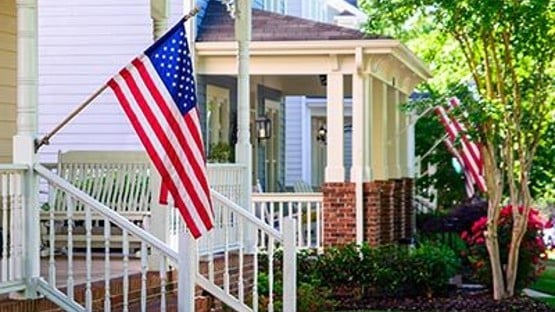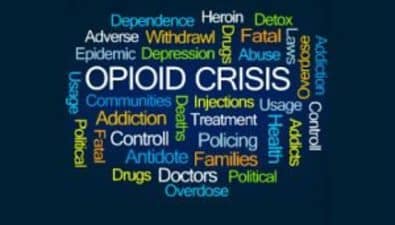
America’s birthday is fast approaching while the nation struggles with high inflation and elevated homicide rates.
WalletHub released its report on 2023’s Most Patriotic States in America.
The personal finance website compared the 50 states across 13 key indicators of patriotism. Data includes military enlistees and veterans, share of adults who voted in the 2020 presidential election and AmeriCorps volunteers per capita.
The most patriotic state is Virginia, which is first for active-duty military personnel per 100,000 civilians. Virginia is also first for having a U.S. History or Civics Education requirement, and second for number of veterans per 1,000 civilians. Virginia is fourth for number of Peace Corps volunteers per capita and ninth for percentage of adults who voted in the 2020 presidential election.
Other patriotic states include Montana at no. 2, followed by Alaska, North Dakota and Maine. Maryland is no. 12, North Carolina is no. 22 and West Virginia is no. 25.
Experts offered WalletHub commentary on the characteristics that make for a good patriot.
“A true patriot believes in the founding principles of this country that was so eloquently expressed in the Declaration of Independence and the Constitution as well as Thoreau’s Civil Disobedience, Lincoln’s Gettysburg Address, FDR’s Four Freedoms, Martin Luther King’s Letter from a Birmingham Jail,” Temple University Professor Ralph Young said. “A true patriot works to be a positive influence in advancing those principles but is also someone who is not afraid to speak out when the nation itself is not living up to those principles. If you love your country you must work to make the reality in the United States more closely resemble the ideal image we have of ourselves. We have to ‘be true,’ as Martin Luther King said in his last speech, ‘to what we put down on paper.’ A true patriot does not believe in ‘my country, right or wrong;’ but will do all they can to make sure the country is doing what is right.”
Bryant University Senior Lecturer Ron Washburn said the concepts of a patriot and patriotism have evolved or devolved in recent decades.
“A patriot ought to have the characteristics of one who loves their country and wants to further its best interests. One who puts those interests ahead of their own and is free from purely political motivations. A patriot understands the value of freedom and the costs that are associated with its acquisition and preservation,” Washburn said.
Dr. Kevin Cokley, a professor and associate chair for diversity initiatives at the University of Michigan, said American children should be raised to first be global citizens, then American citizens.
“Technology has made the world incredibly interconnected. Our children are using technology in ways we did not growing up so it would make sense for our kids to be raised as global citizens. Additionally, Americans need to be less American-centric. Contrary to the socialization of many Americans, the world does not revolve around the United States. An American first orientation breeds insularity and a close-mindedness that, ironically, does not effectively serve the interests of the United States globally. Our children need to understand the importance of having a global perspective that ultimately makes the United States more competitive,” Cokley said.
According to Professor Steven Greene, who teaches at North Carolina State University, it is important to be a citizen of both the world and the United States.
“I think it is very clear here in 2023 that our actions have an impact on our fellow Americans, but also on our fellow humans and children should be made aware of that. Nonetheless, here in America, we grow up to play a fundamental role in how our country operates. We truly are a government by the people. And thus, proper American citizenship requires genuine knowledge of and participation in our shared government. That just does not happen at a global level, so, in that sense, American citizenship comes first,” Greene said.
What is the relative influence of economic incentives versus patriotic intentions when deciding whether or not to join the military? Has this changed over time?
“Young people choose military service for a wide variety of reasons. Aside from periods when a country actually seems threatened, though, patriotism does not seem to be the driving force. The pay and benefits, not to mention the prestige and discipline, that come with military service may entice some young Americans to enlist — but the military is a profession, and increasingly our volunteer armed forces rely on families who are already part of the military way of life, who prepare their children for such service. Of course, those families may consider loyalty to the military as being part of their definition of patriotism, in which case we might say that the military depends more on patriotism than it used to,” Voss said.
Greene said factors exist and the factors change, but America’s overall economic situation affects military service.
“When good jobs are hard to come by, the economic security of the military is very attractive. In times like now, with very low unemployment, the military must rely more on patriotism and a desire to serve in order to recruit members. Currently, recruitment is falling short because that is not enough and the economic incentives are important, too,” Greene said.










